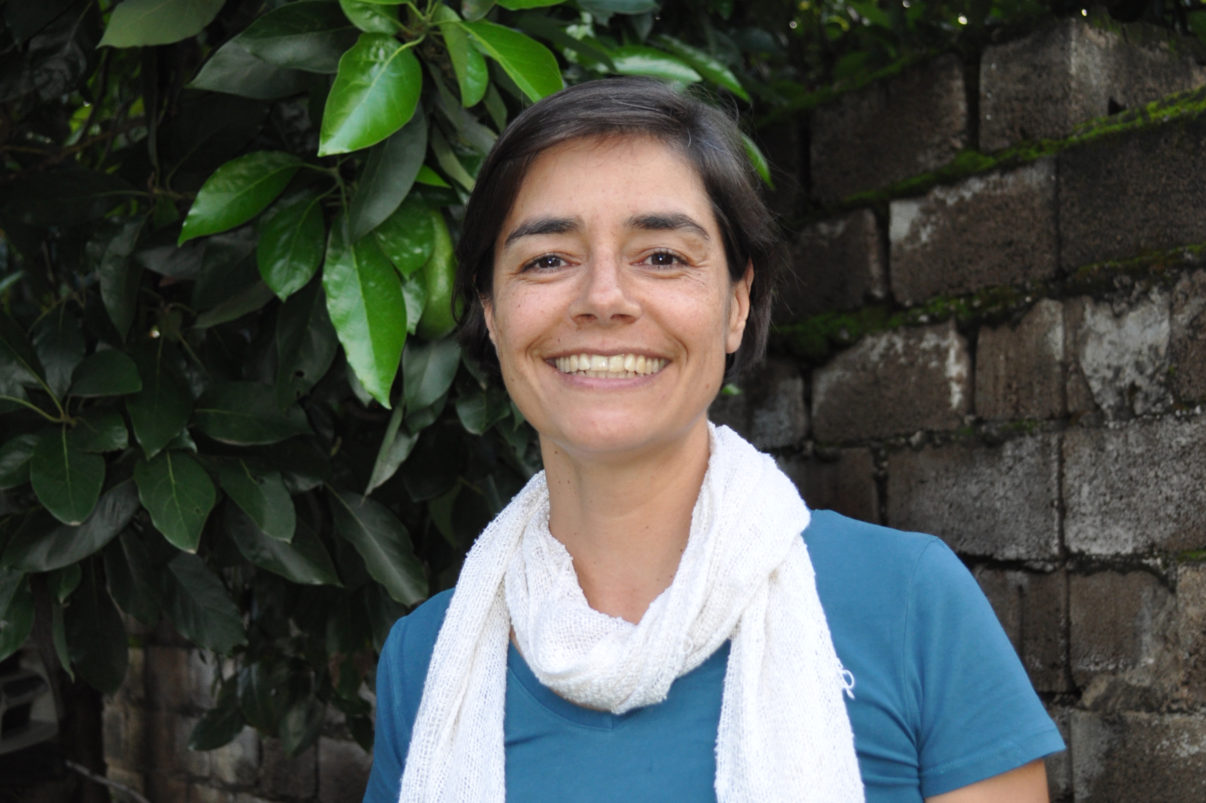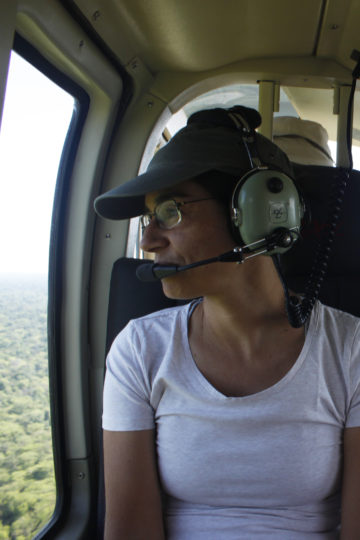Earlier this year Raquel Filgueiras took over from Wouter Helmer as Rewilding Europe’s Head of Rewilding. We caught up with Raquel to find out a little more about her and her aspirations.

Rewilding involvement
How long have you worked for Rewilding Europe?
Since March 25, 2019. So it’s still early days!
And how did you first hear about Rewilding Europe?
I first heard about Rewilding Europe through Rewilding Europe’s Managing Director, Frans Schepers. We go a long way back. I was captivated by the idea of rewilding the moment I heard about it.
Why did you decide to become involved with rewilding?
I believe in the concept of trusting nature to take care of itself, as long as natural processes are given enough space and time to shape that nature. This is one of the core principles of rewilding. I also strongly believe that rewilding is what Europe needs, not just from an ecological and environmental perspective, but also in terms of spirituality and wellbeing. Above all, I believe in people’s need to connect with and be close to wild nature.
People are central to Rewilding Europe’s mission – this is one of the main reasons that I decided to join the initiative. Rewilding Europe’s holistic rewilding efforts mean people have their own place in rewilded landscapes. Here they not only benefit from wild nature, but also re-learn how to coexist with it. This is a paradigm shift for a continent that has forgotten what it is like to share the top of the food chain with other wildlife species.
Need of Rewilding
What would you say are the biggest conservation challenges that Europe faces today?
There are many challenges, but then there are always challenges. I would rather focus on understanding our opportunities, and how we can seize them. Rural depopulation and the resulting land abandonment is no doubt a challenge that goes well beyond the land itself and has ramifications throughout European society.
But this is also an opportunity to provide more space for nature, and to develop nature-based businesses that can sustain European livelihoods in the long term. The rewilding of business sectors such as forestry, water management, tourism and private estate management could have a hugely positive impact on nature.
Future development
What would you like to see achieved in your area of work over the next five years?
In five years’ time I would like to see a far greater number of Europeans believe that rewilding can positively impact both people and wild nature across Europe. I would like rewilding to be fully embedded in the lives of Europeans through the ways they manage their landscapes, businesses they develop, the places where they live and play, and the policies agreed and implemented at the European level.
I would like Rewilding Europe’s 10 rewilding areas to be living examples of what rewilding means on the ground, and how people can not only coexist but also flourish in a landscape inhabited by other large animals. And I would like to see obsolete infrastructure such as old dams, fences and roads removed from the landscape so that natural processes get the space they need and wildlife has space to roam and migratory paths restored.
These days a lot of the news about the environment, biodiversity and conservation issues is negative. Are you optimistic about the future of wild nature in Europe and across the world?
Yes, I am absolutely optimistic! No doubt the challenges are great, but the environment and natural world are at the forefront of public discourse far more than they were 25 years ago. Contemporary society’s awareness of how we are connected to nature is unprecedented. And the need for meaningful connections with others and wild nature is increasingly important in an ever more urban and digital world.
There are now plentiful opportunities now for the development of nature-based enterprises, financial products, fiscal mechanisms and land ownership models, as well as to improve society’s wellbeing through connection and reconnection with nature. It’s up to us to think innovatively and seize these opportunities.
Inspiration
Can you tell us about a couple of conservation-related stories that you find particularly inspirational (perhaps involving rewilding)?
My experience relates mostly to Africa. I have been fortunate enough to work with the African Parks Network, managing Liuwa Plain National Park. This is a magnificent, 3,600 square-kilometre flooded grassland landscape in western Zambia, where large herds of wildebeest, other herbivores and predators coexist with local communities and their livestock. This is not a place free of conflict, but it is a place where people are proud of their wildlife and have developed ways to coexist with them.

Now that African Parks is involved and communities have more of a say in the management of the landscape, the park has seen a sharp increase in the number of wildebeests (from 15,000 to 40,000) over a relatively short period of time.
Recent years have also seen African buffalo – a species that had been locally extinct – return to the park. An increase in the number of herbivores has, in turn, led to an increase in the number of predators, smaller mammals and birds.
Connecting with wild nature
One of Rewilding Europe’s aims is to reconnect people with wild nature. Do you need wild nature in your life, and if so, what does it give you?
Yes, wild nature is essential in my life. More than anything, a deep connection with nature gives me a sense of belonging and unity with the planet and people around me. Having witnessed firsthand the ability of nature to recover from the impact of human activity, it also gives me a sense of humbleness and calmness, and shows me that rewilding is possible.
Where are you favourite places for reconnecting with nature?
Everywhere! From my own garden to the tops of mountains, from watching a bird cleaning its feathers to large African predators stalking their prey. I believe connecting with nature doesn’t depend on location, but from our ability to see and interact with the natural world that is all around us.
What’s your favourite animal, and why?
The European robin has a special meaning for me because it was the first bird I was able to name, by myself, growing up as a child in Portugal. I still remember using my grandfather’s vintage binoculars and the moment it happened. This common bird symbolises a connection that I’ve had with nature since a tender age, and the doorway that I passed through into a life packed with wild natural experiences.
—
Wouter Helmer, who had held the position since Rewilding Europe was formed in 2011, has moved on to focus on specific topics in our initiative, in particular leading the new GrazeLIFE project, dam removal, new finance mechanisms and developing new business cases that can deliver rewilding outcomes. He will combine this with a part-time sabbatical over the next three years.
